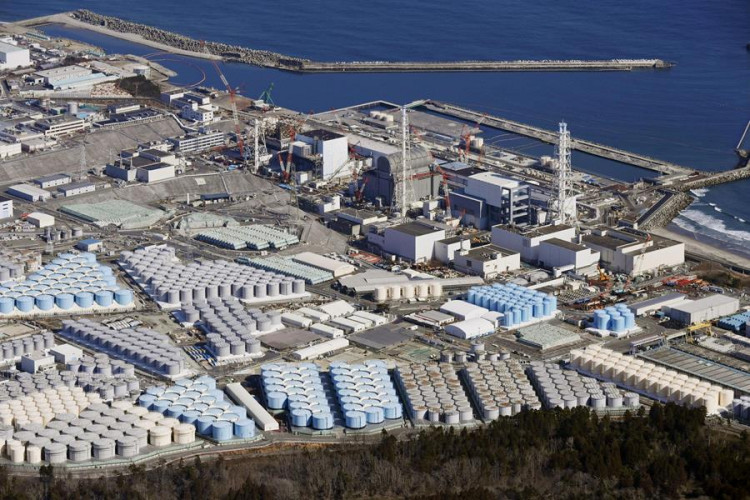Japan Tuesday said it will release more than 1 million metric tons of water from the damaged Fukushima nuclear power facility back into the sea - a decision that drew criticism from South Korea and environmental groups.
The government said the dumping of treated radioactive water won't have a negative effect on human health or the environment despite worries from local fishermen and neighboring countries.
The release will start in around two years, Japan officials said. The process is expected to take decades to complete.
Water pumped into the damaged nuclear stations at the Fukushima facility to cool the melted fuel, blended with rain and groundwater that have also been contaminated, is treated in a process called advanced liquid processing system.
Japan Prime Minister Yoshihide Suga told a meeting of ministers Tuesday the government had decided releasing the water into the Pacific Ocean was the "most realistic" option in order to achieve Fukushima's total rehabilitation.
South Korea is opposed to the move. Its foreign ministry representative said releasing the radioactive water in the sea would "directly and indirectly affect the safety of the people and the neighboring environment," The Japan Times said.
The move is "extremely irresponsible," China's foreign ministry said in a statement, adding China reserves the right to take further action. Greenpeace Japan said it "strongly condemned" the water's release.
South Korea and China are among 15 countries that continue to ban imports of agricultural and fishery products from Japan because of the Fukushima disaster.
Meanwhile, the International Atomic Energy Agency supports Japan's decision. It said radioactive elements, except tritium, will be removed from the water or reduced to safe levels before it is discharged.
"There's consensus among scientists that the impact on health is minuscule," The Guardian quoted Michiaki Kai as saying. Kai is an expert on radiation risk assessment at Japan's Oita University of Nursing and Health Sciences.






